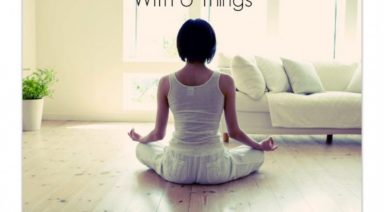Want to Smile More? 3 Questions to Ask Yourself

A dimple, a crinkle, a twinkle, and a lightness of the spirit equals a genuine smile. A smile has the power to capture hearts around us. I notice that a genuine smile makes me feel vibrantly alive! Smiling is about fulfillment: a sense of meaning, integrity, and satisfaction that fills a moment in time.
Experiencing more genuine smiles means making decisions to support our internal satisfaction. Shaking up the status quo of our lives, if need be, to create more space. When we decide we want more meaning, integrity and satisfaction, we make the necessary changes. During those transitions we often find speed bumps in the road; what we need to genuinely smile feels impossible, bad, scary, guilty, selfish, etc… If this enters your process, don’t fret; simply keep the end result in mind.
Along the journey of life, many of us will experience an empty feeling, when smiles are few and far between; those empty gaps can feel like small ravines or big grand canyons. When we notice those gaps, often, we fill them with tangible things – when in fact what we are searching is an experience to scratch an emotional itch. A desire to feel more congruent in our lives, that we are contributing, giving, receiving, playing, expressing, and being seen for who we are in the world. To satisfy those voids, strengthen your ability to regularly choose experiences that make you feel complete.
To smile more, and bask in being vibrantly alive, try asking yourself:
Where am I selling out on myself?
What thrills me?
What makes me laugh out loud?
Notice what comes to your mind when you ask these questions. Write the answers down, and leave the judgment out. Decide on one small action, relative to above, and take it in the next seven days. Make sure the action makes you feel lighter and it’s not another to-do item. Then call anyone you enjoy sharing your smile with, or email me, and declare your right to smile more today!
The Meaning of Life Experiment; The Age When You'll Find Purpose

The calendar has turned the page and we find ourselves facing a brand new year and decade. So many of us take this annual ritual as a signal to assess our life’s purpose and meaning. The very question of the meaning of life has captivated human existence from the very beginning, from philosophy to religion, to science, and metaphysics. But now a scientific study has determined the average age at which people say they believe they’ve found some meaning,
In a 2009 psychological test called “The Meaning of Life Questionnaire,” over 8000 participants displayed two very different scores – the first being how hard the participants felt they were searching for a sense of meaning, or purpose, and the second score showing whether the participants believe they’d found it. The results? The harder participants looked for meaning, the lower their happiness and life satisfaction were rated.
There is no one meaning per se; the meaning of life is both a universal and individual quest and one that is ever-changing. As researchers have discovered, the meaning of life is not a single, specific goal we aim to reach, but a continual striving that we fine-tune and evaluate, transforming as we grow and age.





































